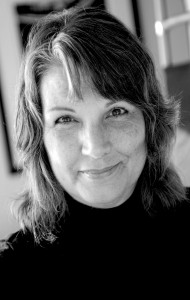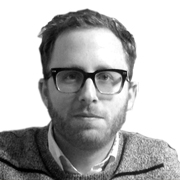 Lisa Findley
Lisa Findley
Professor Lisa Findley is a registered architect and an active architectural journalist who writes primarily in public venues to explore architecture and its position as a visual, material, and cultural practice in a rapidly changing world.
With her graduate degree in Architecture underpinned by undergraduate work in environmental science and policy as well as political theory, Findley’s reading, research, and writing to cross over into many other fields. These range from cultural geography and anthropology to cultural and postcolonial studies, from landscape architecture to natural history and cartography. She travels extensively as an architectural journalist and academic pursuing an ever-increasing understanding of the roles architecture and space play within the dynamics of culture and power, and the role architects and their practices can perform in the exploration and manifestation of locally based modernisms.
Findley is author of the book Building Change: Architecture, Politics, and Cultural Agency (Routledge, 2005) and the following essays, among others: “Architecture and the Representation of Culture: The Tjibaou Cultural Center” in The Green Braid: Towards an Architecture of Ecology, Economy, and Equity (Routledge, 2007), “Once Again by the Pacific: Returning to Sea Ranch” with coauthor Tim Culvahouse in Judging Architectural Value (Minnesota 2007), “Red and Gold: Two Apartheid Museums and the Spatial Politics of Memory in the ‘New’ South Africa” in Places Journal online, 2011, “Becoming Visible: Appropriating the Spaces of Apartheid South Africa” (with coauthor Liz Ogbu) in the book Consuming Architecture (Routledge 2014).
Findley is author of the book Building Change: Architecture, Politics, and Cultural Agency (Routledge, 2005) and the following essays, among others: “Architecture and the Representation of Culture: The Tjibaou Cultural Center” in The Green Braid: Towards an Architecture of Ecology, Economy, and Equity (Routledge, 2007), “Once Again by the Pacific: Returning to Sea Ranch” with coauthor Tim Culvahouse in Judging Architectural Value (Minnesota 2007), “Red and Gold: Two Apartheid Museums and the Spatial Politics of Memory in the ‘New’ South Africa” in Places Journal online, 2011, “Becoming Visible: Appropriating the Spaces of Apartheid South Africa” (with coauthor Liz Ogbu) in the book Consuming Architecture (Routledge 2014).
As an architectural journalist, she has written scores of articles for numerous publications including Architect magazine, Architecture magazine, Architectural Record, Harvard Design Magazine, World Architecture, Architecture Australia, Architecture South Africa, Baumeister and Places Journal. She is also author of introductions for monographs on buildings and architectural practices and of catalog essays.
As an architectural journalist, she has written scores of articles for numerous publications including Architect magazine, Architecture magazine, Architectural Record, Harvard Design Magazine, World Architecture, Architecture Australia, Architecture South Africa, Baumeister and Places Journal. She is also author of introductions for monographs on buildings and architectural practices and of catalog essays. With coeditors Marco Cenzatti and Abidin Kusno, Findley was a theme editor for the spring 2010 issue of the Journal of Architectural Education (JAE) titled Changing Asia. She served on the editorial board of the Journal of Architectural Education from 2004–10 and as a contributing editor to Architectural Record from 2003–10. She is currently on the editorial board of Architecture_MPS, an online journal based in London.
She is a frequent participant in conferences related to architecture, geography, and cultural studies. In addition, she has delivered keynote addresses at symposia on making visible, through architecture, specific marginalized cultures in urban settings as diverse as Melbourne and Washington, D.C
Findley’s current research is on contemporary architects and architectural practices outside of Europe and North America that seek robust locally derived building technologies and formal, spatial and contextual building strategies that form a response to the homogenization and the capital intensive technologies of globalized practice.
With a keen interest in the issues of globalization and it impact on other cultures, Findley has taught and lectured at universities in Malaysia, Australia, and South Africa as well as throughout the United States, and has worked as an international workshop teacher in SE Asia with the Getty Conservation Institute.
Findley has taught architecture at CCA since 1994. She is the founder of CCA’s Graduate Program in Architecture, served as interim chair for both the BArch and MArch Programs from 2005-8, and served as chair of the BArch Program from 2009-12. She teaches both MArch and BArch students in advanced design studios and special topic seminars at CCA. In addition, she leads architecture studio travel programs to China.
 Adam Marcus, Variable Projects
Adam Marcus, Variable Projects
CCA Associate Professor
Adam Marcus directs Variable Projects, a design and research studio that operates at the intersection of architecture, computation, and fabrication. He is also a partner in Futures North, a public art collaborative dedicated to exploring the aesthetics of data. His work explores ways in which new technologies can interface with longstanding architectural traditions of craft, materiality, ornament, and pattern. Prior to founding his own practice, he worked at Marble Fairbanks in New York City as project architect for a number of award-winning educational and public projects.
Recent projects include Centennial Chromagraph, a computationally-designed architectural installation which received a 2015 Small Project Award from the national chapter of AIA, and Meander, a permanent public artwork commissioned for CHS Field, a new baseball park in Saint Paul, Minnesota.
At CCA he teaches design studios and courses in computational design and digital fabrication, often collaborating with the Digital Craft Lab. From 2011 to 2013, he was the Cass Gilbert Design Fellow at the University of Minnesota School of Architecture, where he chaired the symposium “Digital Provocations: Emerging Computational Approaches to Pedagogy & Practice” and organized the school’s annual Architecture As Catalyst graduate workshop program. He has also taught at Columbia University, Barnard College, and the Architectural Association’s Visiting School Los Angeles. In 2013, he was selected by Design Intelligence as one of the ’30 Most Admired Educators.’
Adam is a graduate of Brown University, where he studied art and architectural history, and Columbia University’s Graduate School of Architecture, Planning and Preservation. He is LEED accredited, NCARB certified, and is a licensed and registered architect in the states of California and New York.
